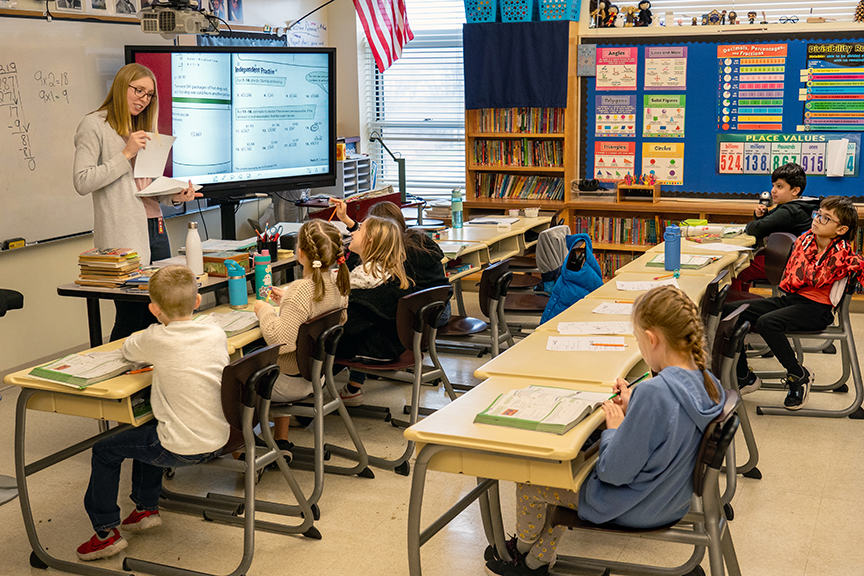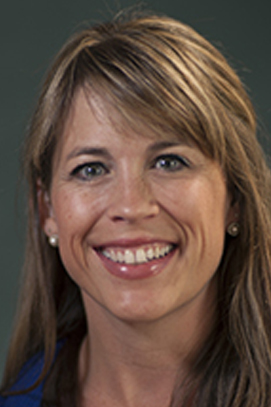
Elementary Education
Husson believes that instilling in children the sheer love of learning, the ability to read, write, and problem-solve; and the interpersonal and thinking skills necessary to propel meaningful learning, are the basic building blocks of a child's education.
Elementary Education Program Outline
 The program outline indicates the types of courses you need to take in Elementary Education. A significant number of required courses in the first two years are liberal art courses. Starting from your third year, you will begin to take the professional educational courses, the elementary education core courses, and the academic content electives. Your final semester involves student teaching, one of your experiential learning requirements, and the seminar in teaching course allowing you to simultaneously develop a capstone portfolio based on the cumulative experiences you have had to indicate your accomplishment in the program.
The program outline indicates the types of courses you need to take in Elementary Education. A significant number of required courses in the first two years are liberal art courses. Starting from your third year, you will begin to take the professional educational courses, the elementary education core courses, and the academic content electives. Your final semester involves student teaching, one of your experiential learning requirements, and the seminar in teaching course allowing you to simultaneously develop a capstone portfolio based on the cumulative experiences you have had to indicate your accomplishment in the program.
Elementary Education Program Experiences
The program experiences in the Elementary Education Program include five areas:
- Liberal Arts: General Education courses
A strong liberal arts experience is essential to the success of being an elementary teacher. Liberal arts courses include experiences in English, mathematics, sciences, history, psychology, sociology, ethics, children's literature, and microcomputing. These are the foundation of a well rounded professional elementary education teacher.
- Professional Educational courses
Professional educational courses prepare teachers to be conversant with the philosophy of education, educational processes, standards, and technology as defined by the State of Maine Learning Results for 21st century educators. Courses in these areas include philosophical foundations of education, technology in education, learning theory and classroom management, assessment practices, curriculum and instruction, and seminar in teaching. - Elementary Education Core Courses
There are six core methods courses in the program. They are designed to teach methods of curriculum and instruction in the areas of language arts, writing, reading, science, mathematics, and social studies. These methods courses are the extensions to many of the required liberal arts courses in the five subject areas. - Academic Content Electives
The elementary education program at Husson University prepares students for K-6 certification. The program offers 12 credits of content electives for students to gain added background in areas of interest. - Clinical Experiences, Practicum, and Student Teaching
There is one non-credited clinical experience, three one-credit-hour practicum experiences, and a fifteen-credit-hour student teaching experience.
For more information on Clinical, Practicum, and Student Teaching experiences, please see Hands-on Learning.
Your Career Begins Here
Discover Husson by visiting — in person or virtually
Fitting in at Husson is easy — learn more!
Take the first step toward your future
Find Out More
Sign up to receive information on the College of Science and Humanities at Husson.
For more information
| Name |
Phone and Email | Address |
|---|---|---|
 Shelly Tennett, EdD
Shelly Tennett, EdDAssistant Professor, Chair of Teacher Education |
207.941.7657 tennetts@husson.edu |
126C Darling Learning Center Husson University 1 College Circle Bangor, Maine 04401 |
